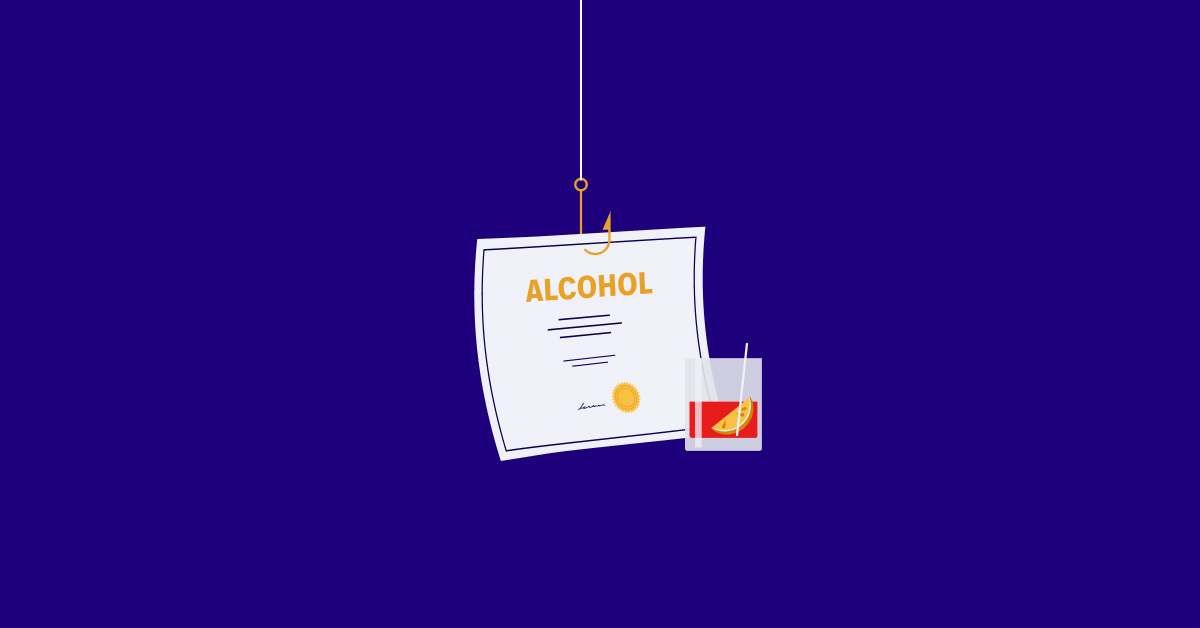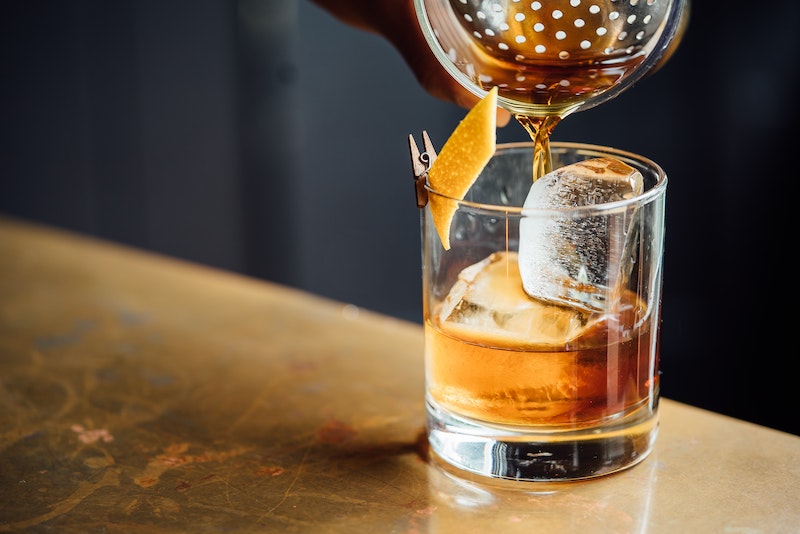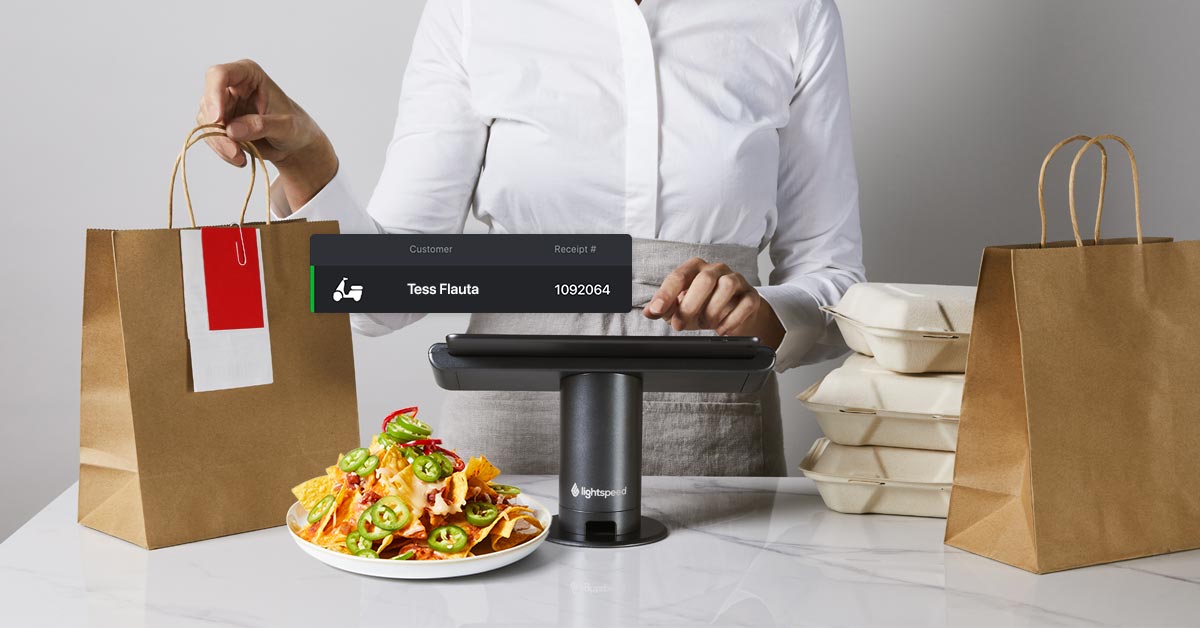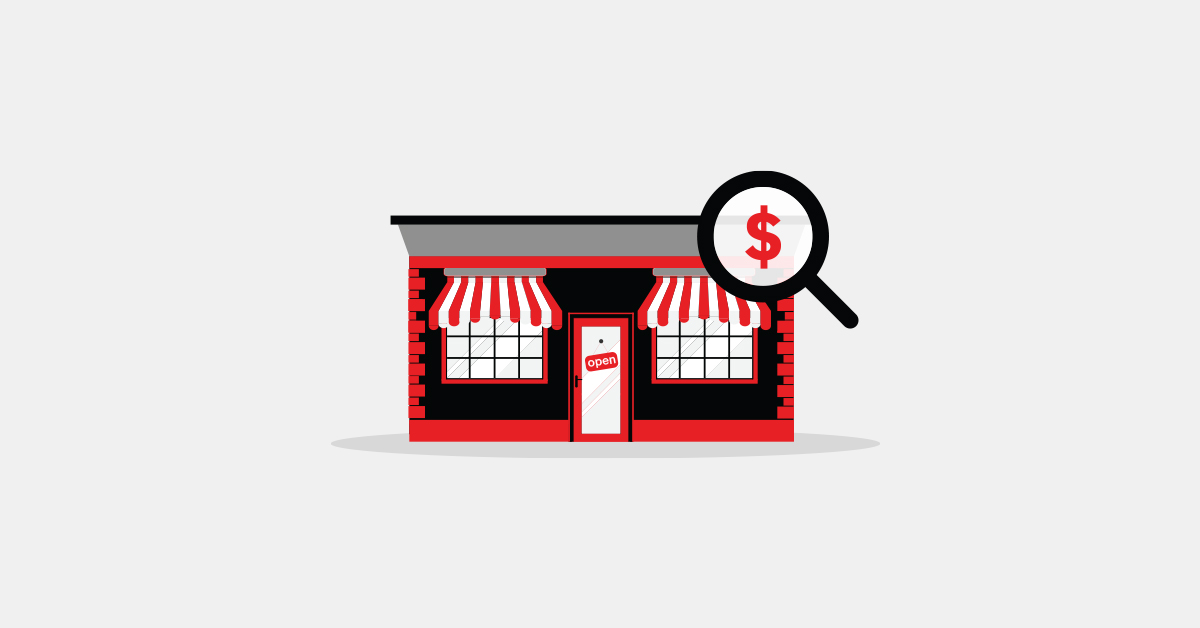
The world of restaurant licenses and permits in the US is a lengthy and expensive process. But obtaining a restaurant liquor license is usually key to financial success for most restaurants and bars. With food margins so thin because of spoilage and waste, alcohol is where many establishments make most of their profit. So if you lose your restaurant liquor license—especially if you get hit with a steep fine—it could be game over for your business.
- 7 ways you could lose your alcohol license
- Preventative measures for maintaining your liquor license
- Legal implications of losing your liquor license
- Navigating the licensing process
- 7 common pitfalls in the licensing process and how to avoid them
Restaurant Employee Handbook Template
Standardize your restaurant's policies, guidelines and processes with your custom restaurant employee handbook.
7 ways you could lose your alcohol license
1. Not properly checking IDs
If you don’t properly check photo ID as required by state law (local liquor boards will often run sting operations checking for this) and you end up serving minors alcohol as a result, you can lose your license. In fact, in the US, serving alcohol to someone under 21 is the most common reason a restaurant liquor license is revoked.
2. Letting unlicensed or underage staff serve alcohol
Many states require that staff serving alcoholic beverages obtain a permit or certification such as ServSmart or SmartServe. If someone serves drinks without this certification, depending on which state you are in, your license can be revoked. Most states also require anyone serving alcohol to be at least 18 years old (though it could be older), so that’s something to keep in mind when you’re in the hiring process.
3. Allowing staff to drink on the job
In many states, it is illegal to allow staff to consume alcohol while they’re still on shift and can result in you losing your liquor license. It’s important to stress the severity of drinking on the job to your staff and how it can negatively affect the business as a whole. This is also the reason why some bars or restaurants may not allow staff to drink at the establishment even off the clock, as an additional precaution.
4. Letting guests drink in unlicensed areas
If you have an outdoor patio or set up tables and chairs on the sidewalks during the summer months, your restaurant liquor license may not extend to those areas, depending on your state laws, property lines or other factors. Before setting up and serving in an outdoor area, check to see if there are any additional permits or licenses you need to obtain.

5. Serving patrons who are visibly intoxicated
In order to avoid guests getting too intoxicated at your bar or restaurant, it’s important to cap the number of drinks they can be served within a certain time period and to offer them food and water between drinks. If a guest shows up to your establishment already intoxicated, offer them food, water or to call an Uber or cab for them, but let them know you won’t be serving them alcohol at your business.
If a bar continues to serve a patron who is visibly intoxicated, the bar, bartender and the license holder can all be held liable and forced to pay damages in the event of personal injury, accident or death. The license holder could also permanently lose their restaurant liquor license.
6. Not having control of your guests
If your patrons are too loud, are too intoxicated or are engaging in illegal behavior (even without your knowledge), you could be held liable for their behavior, especially if the police receive enough complaints from surrounding businesses, residents or other guests. If your guests are behaving badly and don’t respond to polite but firm requests to be more respectful of those around them, you’ll need to get them out of there.
7. Not keeping proper documentation
If it’s found that you don’t keep legitimate records—such as invoices or order sheets—that document where and when your alcohol was procured before serving, your license can be revoked. When you receive a delivery from one of your alcohol vendors, make sure they give you proper documentation and that you store the records in a safe and organized place where you can easily access it if needed. Stay more organized with a liquor POS system such as Lightspeed’s.
Preventative measures for maintaining your liquor license
Regular staff training on alcohol laws
To prevent liquor license suspension, conduct regular training sessions for all front of house staff members on state and federal alcohol regulations. Training should cover responsible service of alcohol, recognizing fake IDs and handling difficult situations like refusing service to intoxicated patrons. Regular refreshers ensure that staff are always up-to-date with current laws and best practices.
Implementing effective ID verification systems
If you really want to protect your restaurant’s alcohol license, you can invest in advanced ID verification technology like electronic scanners that help to minimize human error in age verification. Having ID verification technology will not only improve the accuracy of your ID checks, they will also serve as a deterrent to underage individuals trying to order alcohol in your establishment.
Strategies for handling intoxicated patrons
It’s a good idea to develop a clear protocol for managing intoxicated customers. This includes training staff on how to identify signs of excessive intoxication, techniques for de-escalating potential conflicts and policies for safely refusing service and arranging transportation for affected individuals.
Legal implications of losing your liquor license
So, what happens if you lose your liquor license?
Financial penalties and legal consequences
A lost liquor license can lead to significant financial loss due to legal fines, lost sales and potential lawsuits. In extreme cases, criminal charges may be filed against the establishment or individuals responsible for violations.
The impact on business reputation and operations
Liquor license suspension or loss can damage your restaurant’s reputation, leading to a decline in patronage and negative media coverage. It also stops you from being able to sell alcohol, which is a major revenue stream for most establishments.
What to do if your license is suspended or revoked
If faced with liquor license suspension or revocation, consult legal experts immediately. Review the reasons why the action was taken and work on rectifying issues. Prepare for the hearing process and explore temporary measures to sustain your business operations during this period.
Navigating the licensing process
Understanding different types of liquor licenses
Familiarize yourself with the various types of liquor licenses available, as they vary by state and region. Each type has its own set of rules and regulations that apply to different types of establishments, such as full-service restaurants, bars or clubs.
The application process for new and renewing licenses
Liquor licenses in the US are regulated separately by each state, and each state has its own rules and regulations. Applying for a liquor license can be confusing, because not all state governments offer the same licenses, or the licenses may go by different names in different regions.
For example, the state of Arizona has 21 different series of liquor licenses, each with its own unique application process. That’s why the first step to getting your liquor license is always research.
1. Do your research
Before applying for a liquor license, you need to make sure you understand your state’s specific laws and requirements for obtaining a liquor license. Your county or municipality may have additional requirements on top of your state’s rules, so don’t forget to make the necessary inquiries at the local level.
You should be able to find out everything you need to know about your area’s liquor license requirements by contacting your state’s Alcohol Beverage Control (ABC) board.
2. Submit your application
Once you know your business meets all requirements, including zoning and health and safety requirements, you can apply for a liquor license with your local alcohol control agency.
Make sure to submit all the required documentation—e.g. proof of business registration, lease agreements, detailed floor plan of your premises, etc.—along with all the fees.
You typically have to pay a license fee and an application processing fee, but there may be other fees such as online service fees, fees for other required permits (e.g. signage permit, alcohol tax permit). These permits can cost anywhere from a few hundred dollars to thousands of dollars, depending on your state.
3. Notify the community
In some regions, you may be required to post a public notice at your establishment or in a local newspaper announcing your application for a liquor license. This allows community members to object to your business selling alcohol in the area. If there are any community objections, a liquor license will not be issued unless those objections can be resolved by you or your local liquor control board.
4. Defend your proposal
If a member of your community disagrees with your proposal to sell alcohol, you may have to defend your proposal at a public hearing. This hearing is an opportunity for both sides to address any concerns and potentially resolve them. For example, if residents are worried about loud noise, you may be able to come to an agreement by offering to turn off the music after a specified time, or to keep music below a certain level.
It can take a few weeks to several months to get a liquor license, depending on the state/province in which you’re applying. You’ll need to renew your liquor license every 1-3 years (depending on state and local laws). If you break any liquor laws, your license can be suspended or revoked.
7 common pitfalls in the licensing process and how to avoid them
Applying for a liquor license can be a complex and nuanced process. Avoiding pitfalls requires careful planning, attention to detail, a solid understanding of the regulatory landscape and a proactive approach to engaging with your community.
Here are seven of the most common mistakes made during the liquor license application process. By anticipating and navigating these common challenges, you can improve your chances of a smooth and successful liquor licensing process.
| Mistake | How to avoid it | |
| 1 | Submitting incomplete applications or applications containing errors | Carefully review all application materials before submission. Double-check that you’ve included all required documents, and consider having a second set of eyes review everything. Follow all instructions precisely. |
| 2 | Underestimating the time required for approval | Start the application process as early as possible, ideally several months before you plan to start selling alcohol. Be prepared for a lengthy process and have a contingency plan for your business during this period. |
| 3 | Failure to comply with local zoning laws | Before signing a lease or purchasing property, confirm that the location is zoned for your type of business and the sale of alcohol. You should be able to get this information from your local city or county planning department. |
| 4 | Not taking community feedback or objections seriously | Engage with the community early in the process. Attend neighborhood meetings, explain the benefits your business offers, and discuss any concerns residents may have. Demonstrating that you’re a responsible business owner invested in the community can pave the way for smoother approval. |
| 5 | Applying for the wrong type of liquor license or not understanding the requirements | Thoroughly research the different types of liquor licenses available in your state and city, and choose the one that best fits your business model. Your state’s ABC board can advise you on the type of license you need, or you may want to consider consulting with a professional who specializes in liquor licensing. |
| 6 | Not being prepared for health, safety and other required inspections | Ensure your premises meet all health and safety codes, and that you’re fully compliant with any other regulatory requirements before inspectors come. Regularly review compliance guidelines and consider pre-application inspections if available. |
| 7 | Assuming that receiving your license is the end of your compliance requirements | Getting your liquor license is just the beginning—keeping it depends on continuous compliance. Stay informed about ongoing requirements, including staff training, renewal deadlines and any changes in all applicable laws and regulations. Regularly audit your practices to make sure you’re still in compliance. |
Looking for a technology partner to help you manage your operations? Talk to one of our experts today to find out how Lightspeed can help.
FAQS
How do I lose my liquor license?
Losing a liquor license often results from violating laws related to alcohol sales, including but not limited to selling to minors, serving intoxicated patrons or operating outside of permitted hours. Non-compliance with health and safety regulations and failure to renew your liquor license on time can also lead to losing your license.
How long does a liquor license last?
The duration of a liquor license varies by location, typically ranging from one to three years before renewal is required. Specific terms depend on local laws and the type of license obtained. Check with your local regulatory body for details to ensure timely renewal and avoid any lapses in your ability to sell alcohol.
How much is a liquor license?
The cost of a liquor license varies widely depending on the state, city and type of license. Fees can range from a few hundred to several thousand dollars. Additionally, some areas operate on a quota system, making licenses more scarce and potentially more expensive due to market demand. Consult your local alcohol regulatory agency for exact pricing and any associated costs.
What happens when an administrative violation occurs on an ABC-licensed premises?
When an administrative violation occurs on an ABC-licensed premises, the licensee may be issued a fine or they may have their liquor license suspended or revoked. The specific consequences depend on the severity and frequency of the violations. Regulatory agencies will typically conduct an investigation, and the licensee may have the opportunity to contest the charges at a hearing.
How much is a temporary liquor license?
In some states, restaurants can apply for a temporary permit to serve alcohol while their license application is being processed. The cost, requirements, duration and process times for a temporary liquor license vary widely across states and jurisdictions. Be sure to consult your local alcohol regulatory body for accurate information and application procedures.

News you care about. Tips you can use.
Everything your business needs to grow, delivered straight to your inbox.



